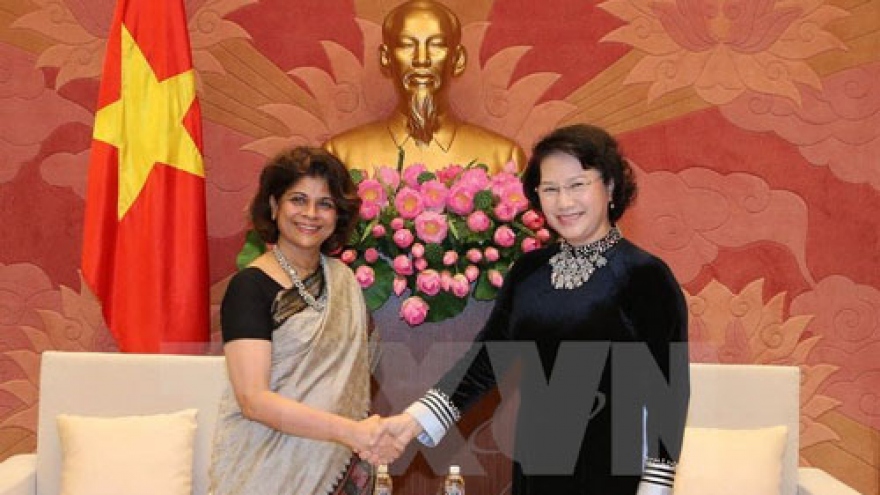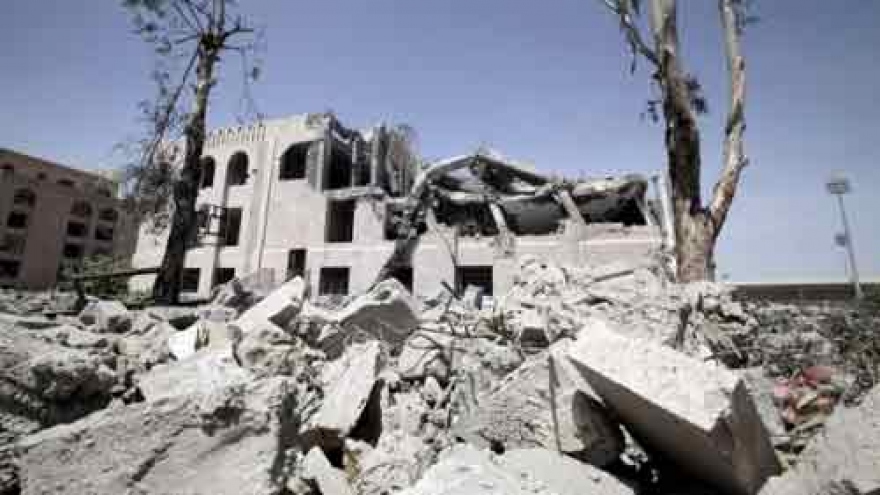UN chief faced funding cut-off, fatwa risk over Saudis
Muslim allies of Saudi Arabia piled pressure on UN chief Ban Ki-moon over the blacklisting of a Saudi-led coalition for killing children in Yemen, with Riyadh threatening to cut Palestinian aid and funds to other UN programs, diplomatic sources said on June 7.
 |
The United Nations announced on June 7 it had removed the coalition from a child rights blacklist - released last week - pending a joint review by the world body and the coalition of cases of child deaths and injuries during the war in Yemen.
That removal prompted angry reactions from human rights groups, which accused Ban of caving in to pressure from powerful countries. They said that Ban, currently in the final year of his second term, risked harming his legacy as UN secretary-general.
Speaking on condition of anonymity, the sources said Ban's office was bombarded with calls from Gulf Arab foreign ministers, as well as ministers from the Organisation of Islamic Cooperation (OIC), after the blacklisting was announced last week. One UN official spoke of a "full-court press" over the blacklisting.
"Bullying, threats, pressure," another diplomatic source told Reuters on condition of anonymity about the reaction to the blacklisting, adding that it was "real blackmail."
The source said there was also a threat of "clerics in Riyadh meeting to issue a fatwa against the UN, declaring it anti-Muslim, which would mean no contacts of OIC members, no relations, contributions, support, to any UN projects, programs."
A fatwa is a legal opinion used in Islamic Sharia law. In Saudi Arabia fatwas can only be issued by the group of top, government-appointed clerics and are sometimes commissioned by the ruling family to back up its political positions.
Responding to the allegations, Saudi UN Ambassador Abdallah Al-Mouallimi said "we don't use threats or intimidation," and Riyadh was "very committed to the United Nations."
Mouallimi denied any threat of a possible fatwa.
On June 6, Mouallimi described the annual UN report on states and armed groups that violate child rights in war as "wildly exaggerated" and demanded that it be corrected.
The main Saudi complaints were that the UN had not based its report on information supplied by the Saudi-backed Yemeni government and accused the world body of not consulting with the coalition. UN spokesman Stephane Dujarric, however, said on June 7 that the Saudis had been consulted.
Several diplomatic sources said that the UN Relief and Works Agency for Palestine Refugees in the Near East (UNRWA) would be hit especially hard if the blacklisting were upheld. Saudi Arabia was the fourth biggest donor to UNRWA after the United States, European Union and Britain, having supplied it nearly US$100 million last year.



